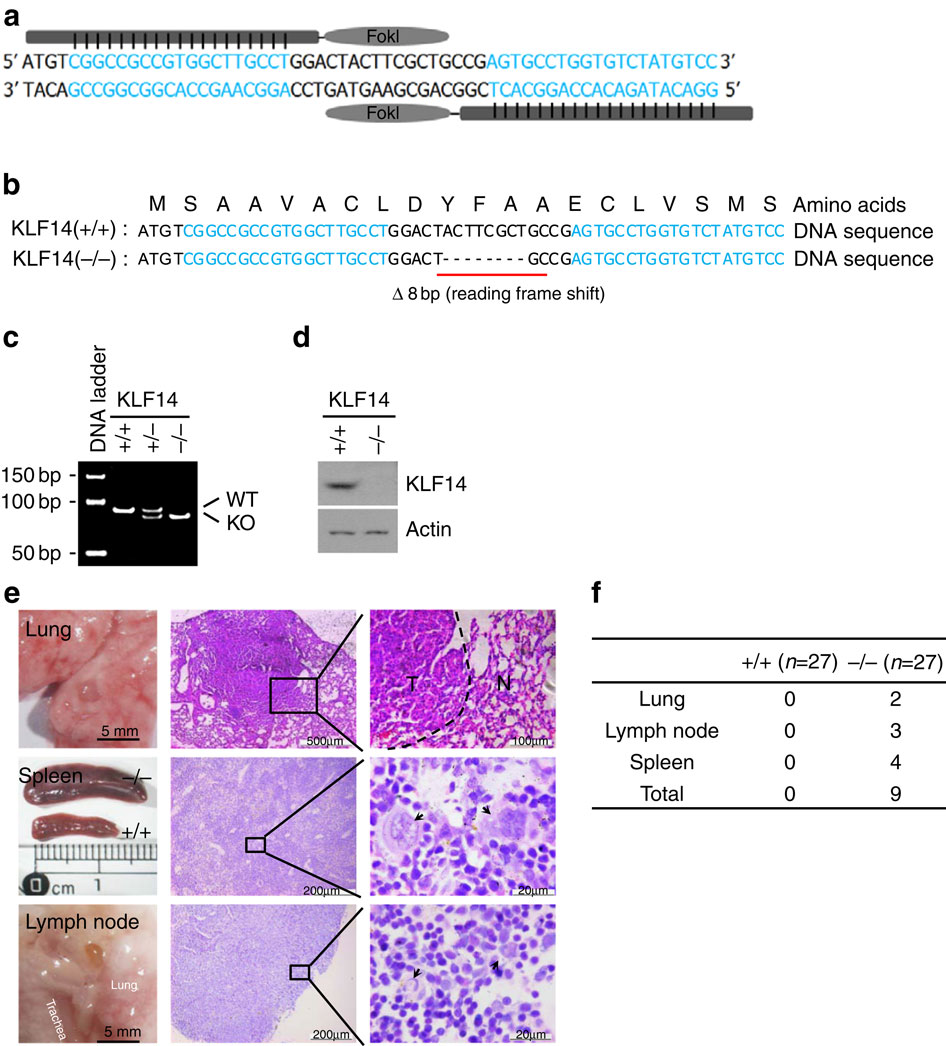当前位置:
X-MOL 学术
›
Nat. Commun.
›
论文详情
Our official English website, www.x-mol.net, welcomes your
feedback! (Note: you will need to create a separate account there.)
Loss of KLF14 triggers centrosome amplification and tumorigenesis.
Nature Communications ( IF 14.7 ) Pub Date : 2015-Oct-06 , DOI: 10.1038/ncomms9450 Guangjian Fan , Lianhui Sun , Peipei Shan , Xianying Zhang , Jinliang Huan , Xiaohong Zhang , Dali Li , Tingting Wang , Tingting Wei , Xiaohong Zhang , Xiaoyang Gu , Liangfang Yao , Yang Xuan , Zhaoyuan Hou , Yongping Cui , Liu Cao , Xiaotao Li , Shengping Zhang , Chuangui Wang
Nature Communications ( IF 14.7 ) Pub Date : 2015-Oct-06 , DOI: 10.1038/ncomms9450 Guangjian Fan , Lianhui Sun , Peipei Shan , Xianying Zhang , Jinliang Huan , Xiaohong Zhang , Dali Li , Tingting Wang , Tingting Wei , Xiaohong Zhang , Xiaoyang Gu , Liangfang Yao , Yang Xuan , Zhaoyuan Hou , Yongping Cui , Liu Cao , Xiaotao Li , Shengping Zhang , Chuangui Wang

|
Centrosome amplification is frequent in cancer, but the underlying mechanisms remain unclear. Here we report that disruption of the Kruppel-like factor 14 (KLF14) gene in mice causes centrosome amplification, aneuploidy and spontaneous tumorigenesis. Molecularly, KLF14 functions as a transcriptional repressor of Plk4, a polo-like kinase whose overexpression induces centrosome overduplication. Transient knockdown of KLF14 is sufficient to induce Plk4-directed centrosome amplification. Clinically, KLF14 transcription is significantly downregulated, whereas Plk4 transcription is upregulated in multiple types of cancers, and there exists an inverse correlation between KLF14 and Plk4 protein expression in human breast and colon cancers. Moreover, KLF14 depletion promotes AOM/DSS-induced colon tumorigenesis. Our findings reveal that KLF14 reduction serves as a mechanism leading to centrosome amplification and tumorigenesis. On the other hand, forced expression of KLF14 leads to mitotic catastrophe. Collectively, our findings identify KLF14 as a tumour suppressor and highlight its potential as biomarker and therapeutic target for cancer.
中文翻译:

KLF14的丢失会触发中心体扩增和肿瘤发生。
中心体扩增在癌症中很常见,但其潜在机制仍不清楚。在这里我们报告破坏小鼠Kruppel样因子14(KLF14)基因会引起中心体扩增,非整倍性和自发肿瘤发生。在分子上,KLF14充当Plk4的转录抑制因子,Plk4是一种polo样激酶,其过度表达诱导中心体过度复制。KLF14的瞬时敲低足以诱导Plk4指导的中心体扩增。在临床上,KLF14转录在多种类型的癌症中显着下调,而Plk4转录在多种类型的癌症中上调,并且在人类乳腺癌和结肠癌中KLF14和Plk4蛋白表达之间存在反相关关系。此外,KLF14消耗促进AOM / DSS诱导的结肠肿瘤发生。我们的发现表明,KLF14的减少是导致中心体扩增和肿瘤发生的机制。另一方面,KLF14的强制表达导致有丝分裂灾难。总的来说,我们的发现将KLF14鉴定为肿瘤抑制因子,并突出了其作为生物标志物和癌症治疗靶标的潜力。
更新日期:2015-10-09
中文翻译:

KLF14的丢失会触发中心体扩增和肿瘤发生。
中心体扩增在癌症中很常见,但其潜在机制仍不清楚。在这里我们报告破坏小鼠Kruppel样因子14(KLF14)基因会引起中心体扩增,非整倍性和自发肿瘤发生。在分子上,KLF14充当Plk4的转录抑制因子,Plk4是一种polo样激酶,其过度表达诱导中心体过度复制。KLF14的瞬时敲低足以诱导Plk4指导的中心体扩增。在临床上,KLF14转录在多种类型的癌症中显着下调,而Plk4转录在多种类型的癌症中上调,并且在人类乳腺癌和结肠癌中KLF14和Plk4蛋白表达之间存在反相关关系。此外,KLF14消耗促进AOM / DSS诱导的结肠肿瘤发生。我们的发现表明,KLF14的减少是导致中心体扩增和肿瘤发生的机制。另一方面,KLF14的强制表达导致有丝分裂灾难。总的来说,我们的发现将KLF14鉴定为肿瘤抑制因子,并突出了其作为生物标志物和癌症治疗靶标的潜力。































 京公网安备 11010802027423号
京公网安备 11010802027423号